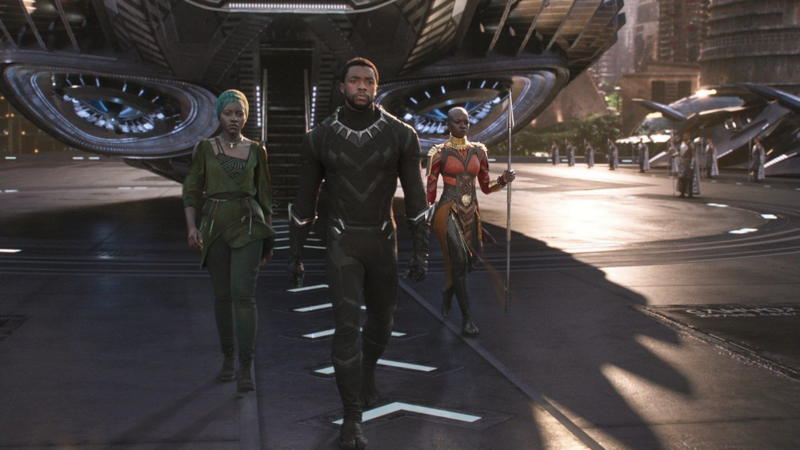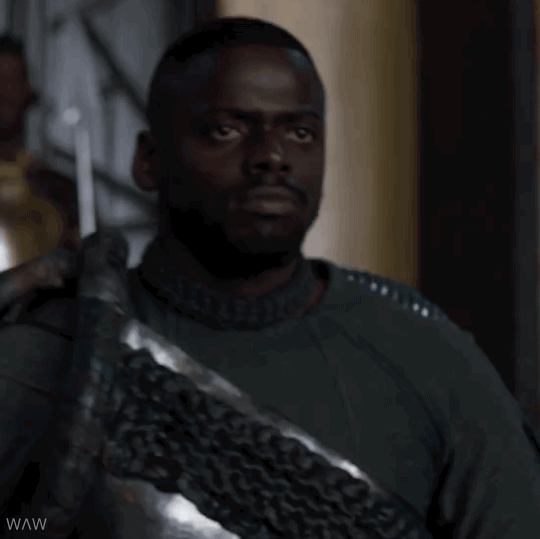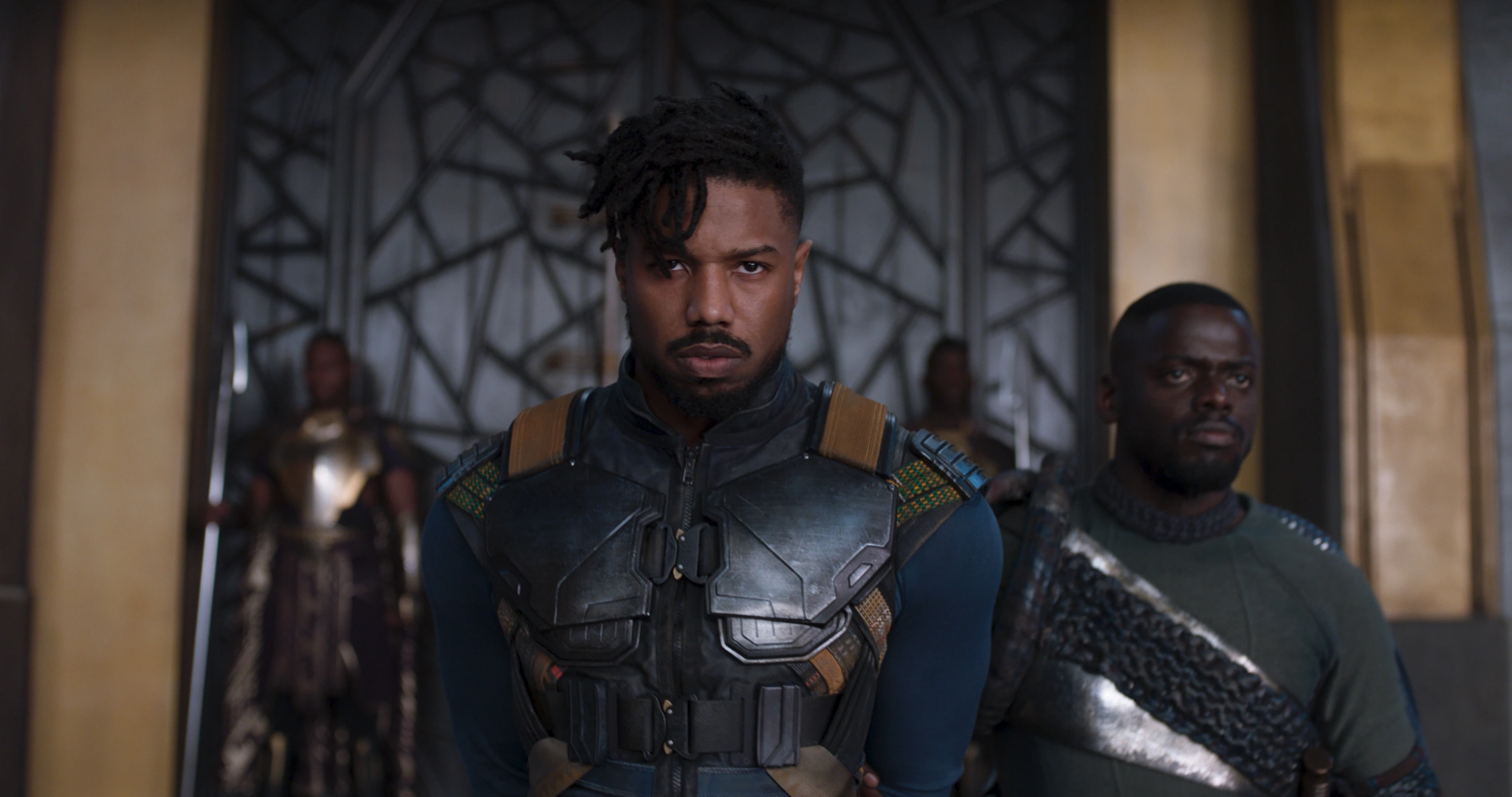Black Panther and the Black Monolith Fallacy

Spoiler Warning: The following op-ed contains significant spoilers for the film Black Panther. Please read at your own risk!
Over the last week and a half, general audiences were introduced to Wakanda, the Afrofuturist utopia of the Marvel Universe, in Black Panther. Directed by Ryan Coogler, who also co-wrote the film, Panther depicts an isolationist, technologically advanced African superpower that was never conquered by the West, and portrays many facets of Black identity — both personal and political. In short, it shows that, regardless of complexion, birthplace, or bloodline, not all Black people are the same.
In America, Black people have been viewed or portrayed as monolithic — most notably in voting patterns where “the Black vote” has been overwhelmingly Democratic for decades. This has often skewed the belief that Black Americans are, by default, liberal — despite existing evidence to the contrary. Interestingly enough, Black Panther tackles the nuances of Black political identity as T’Challa (Chadwick Boseman), a Black moderate, hears the cases of the liberal Nakia (Lupita Nyong’o), conservative W’Kabi (Daniel Kaluuya), and radical Erik Killmonger (Michael B. Jordan) as he contemplates how to best lead his people.
Let’s start with Nakia, a Wakandan spy and T’Challa’s ex-lover. Her introduction is one of intrigue: she is undercover in Nigeria amongst women as hostages of a Boko Haram-esque group of human traffickers before Black Panther blows her cover to recall her for his coronation. Upon returning home, she seems to have been influenced by her travels, urging the would-be king to let Wakanda be a force for change in the world; this makes sense, as her job exposes her to the plights of others firsthand.
Nakia wishes to help the people of Africa — other Black people who cannot necessarily help themselves. She asks T’Challa to accept refugees and provide more foreign aid and outreach. He resists her sentiment, arguing that Wakanda has remained safe due to its isolationism and secrecy; Nakia believes they are fully capable of being a force for change without sacrificing their own security. “Wakanda is strong enough to help others and protect itself,” she tells him. Despite her role as a spy and assassin, Nakia represents the Black liberal (and, perhaps, even Black progressive). To her, those with power and resources have a responsibility to use it for the benefit of others.

W’Kabi, the protector of the Wakandan border and a friend of T’Challa, challenges Nakia’s more liberal views. “If you accept refugees,” he warns, “they bring their problems with them.” In short, he believes that Wakanda is not responsible for any people other than their own. W’Kabi is not simply anti-immigration by upbringing, however. It is implied that he has inherited his role as protector of the border due in part to Ulysses Klaw (Andy Serkis), who killed his father and many others over 30 years prior to the film while stealing Vibranium.
The trauma of a foreign murderer makes W’Kabi more than just a hardline conservative (even in today’s America). He wants revenge, begging T’Challa to take him on a mission to kill Klaw. He also has a bit of an imperialist perspective as well. He suggests that T’Challa send him and his men out to “clean up” the world so Wakanda can rule them “the right way”. Both make him susceptible to radicalization, especially when the film’s antagonist bring him both Klaw’s body and an imperialist sentiment — two things denied him by T’Challa. “The world is changing,” he tells his fellow council members. “Soon it will be the conquerors or the conquered. I’d rather be the former.”

And then there’s Killmonger (née N’Jadaka). The son of Wakandan Prince N’Jobu, brother of T’Chaka and uncle of T’Challa, Erik “Killmonger” Stevens was born and raised in Oakland, California — the birthplace of the Black Panther Party. After the death of his father, he was left to fend for himself until he arrived at the border of Wakanda to reclaim his birthright. A child of the African diaspora, Killmonger is jaded by the death, destruction, and desertion he has witnessed and experienced as a result. “Two billion people all over the world who look like us,” he says, “whose lives are much harder, and Wakanda has the tools to liberate them all.” Later, as he chides the Council for Wakanda’s abandonment, he asks “Where was Wakanda?” as he plots to right the wrongs of Black history.
Radicalized in part by his father — a spy who, like Nakia, was influenced by his travels — Killmonger is the personification of everything white Americans have ever feared of Black people — turned up to eleven. He’s a militant Black radical in search of retribution for the pain and plunder of his ancestors by white oppression — and, were it not for T’Challa (in his mind), he’d have the resources to achieve it. “The sun will never set on the Wakandan empire,” he declares before eventually being dethroned.
In the end, T’Challa chooses to lead his people into the 21st century by allowing the world to know the truth about Wakanda. He leans toward Nakia for various reasons, but mostly because of the betrayals of W’Kabi and, ultimately, his own father. He finds that Killmonger isn’t entirely wrong that Wakanda abandoned Black people the world over, and decides to rectify that and more. He wishes to be an example for the world, to help the people of Earth act as “a single tribe”, and to change the lives of other Africans and children of the diaspora.
One thing is certain, however: T’Challa and the others around him do not think collectively. They have different ideals on policy, identity, and justice. Just as their American counterparts, they are not a monolith, no matter how much people have tried to paint that picture.




1 thought on “Black Panther and the Black Monolith Fallacy”